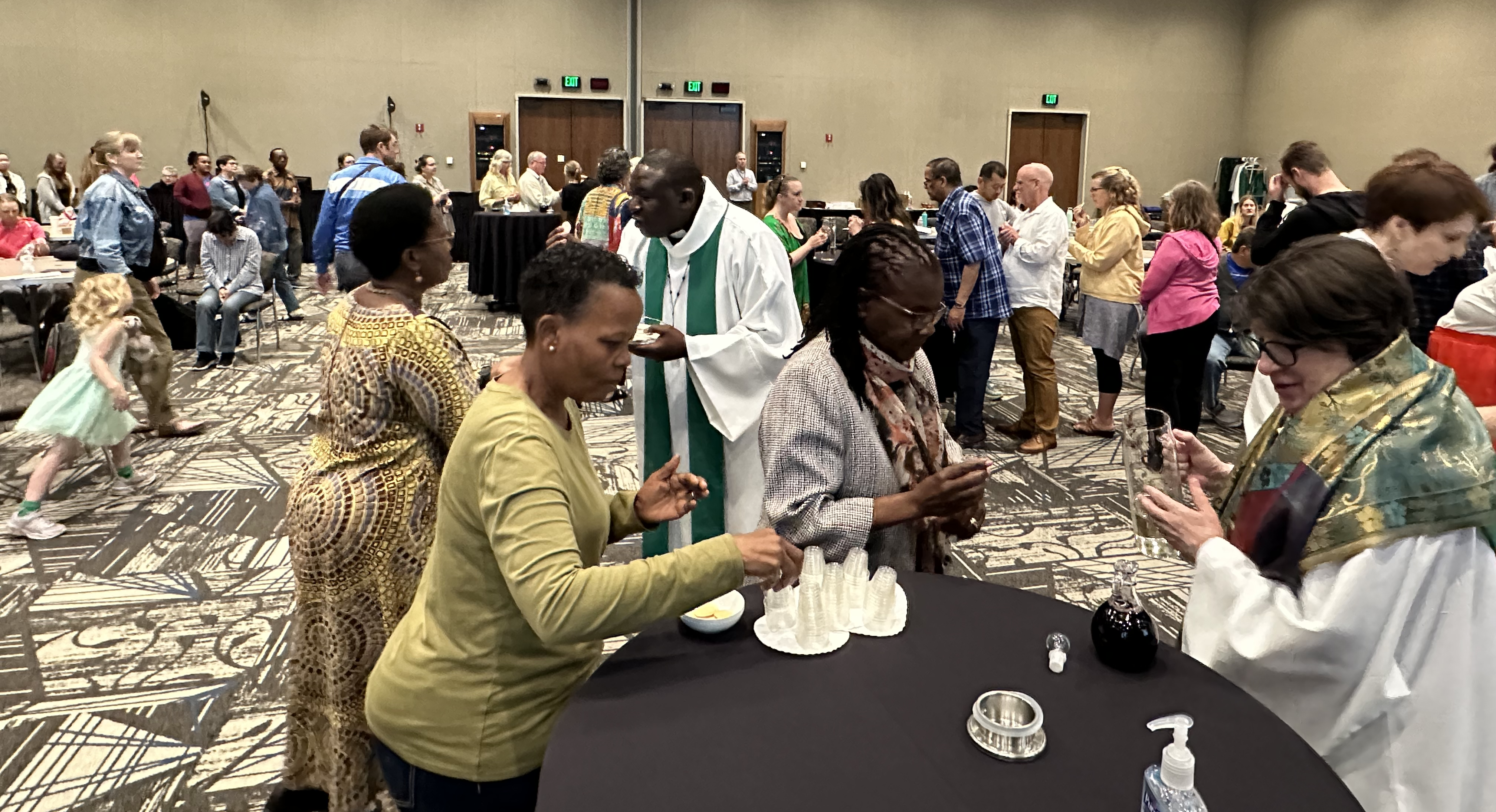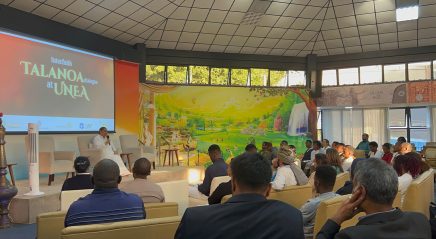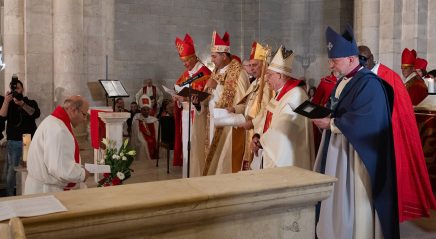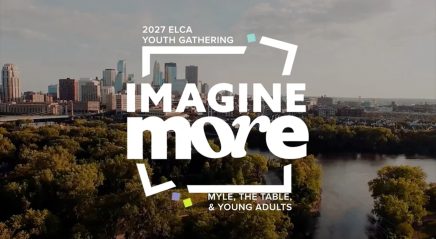What does a team do when they cannot meet in person because the work spans the globe? If you are part of the Service and Justice home area of the ELCA, you hold a weeklong gathering to talk about the evolving landscape of the church, the mission abroad, and themes of love, gratitude and adaptive change. The July 27-Aug. 3 event at the Q Center in St. Charles, Ill., featured discussions on the church’s future in the landscape of an ever-increasing secularization in the United States, the continued importance of global work, and the need to embrace new forms of ministry to serve God’s call.
The ELCA, like the rest of Christianity in the United States, has seen a steady decline in membership since the 1990s. This reality anchored conversations as members of the Vision team discussed the ever-changing landscape of faith in America. The Vision team is a new group in the ELCA tasked with looking at different ways to be church in a secular world while adhering to the tenets of faith and doctrine. Ernie Hinojosa, associate executive for Vision, admitted the data shook him.
“It was hard for me to see this because I love this church,” he said. “To see that grieves me.”
But Hinojosa and Louise Johnson, executive for Vision, believe the data doesn’t mean people are losing faith, just that they are not embracing that faith in a church setting. The need for a “mixed ecology,” as Hinojosa described it, reflects that the ELCA’s future is found in the coexistence of traditional congregations and new forms of ministry that can thrive in differing environments. These new ministries, Johnson said, are reaching people on the margins and connecting with individuals who might never set foot in a church but are nonetheless seeking spiritual engagement.
The need to collaborate on these discussions came to the forefront during that presentation and when Yehiel Curry, bishop of the Metropolitan Chicago Synod, discussed the way different perspectives can lead to different approaches. Using a visual exercise, Curry demonstrated how everyone can look at the same image and come away with a different experience.
“The goal for us is to know that in this there is creative bias,” he said. “This [demonstration] isn’t about the final answer as much as it is about the diversity in the room.”
The presentations preceded a multipart session on the theme “Behold, I am doing a new thing,” the first part of Isaiah 43:19. Chad Rimmer, rector and dean of Lutheran Theological Southern Seminary, spent the bulk of the gathering speaking about the ecologies of belonging and being, key aspects of “breathing out and breathing in” the Great Commission, and the way Service and Justice tangibly lives out these ideas in the wide range of its work.
Service and Justice is the largest of the four “home areas” that make up the ELCA’s churchwide organization, the others being Christian and Community Leadership, Innovation and Operations. The team comprises of missionaries deployed all over the world through various programs, the Ministries of Diverse Cultures and Communities, Witness in Society, ELCA World Hunger, Lutheran Disaster Response, Building Resilient Communities, and the AMMPARO migrant ministry. As such a large team operating throughout all five continents, gathering as a single team is not easy to do. This marked the first such gathering since the area was formed in early 2021 and the first large event under the new executive Khader Al-Yateem.
The recurring theme throughout the gathering focused on love and its influence on the church’s varied missions.
The recurring theme throughout the gathering focused on love and its influence on the church’s varied missions. Early in the beginning of his series, Rimmer stated that love, in each of its types, is the foundation to everything that makes up the ELCA.
“There are thousands of verses in Scripture about what God is like, there is only one place that talks about what God is. That’s found in John’s letter. God is love,” Rimmer said, quoting from 1 John 4:7.
Rimmer spoke about the different types of love—Agape, Philos, and Eros. Heurged the ELCA to embrace the full spectrum of love in its outreach efforts, especially as the church is often thought of as being only in Agape: the selfless divine love. He argued that Philos—the love of friendship or partnership—and Eros—often misunderstood as merely romantic love—are just as important. Eros, he said, is not the romantic aspect of love but a form of creative love that is vital for the church’s mission.
“There is something creative when we make disciples,” he said. “It’s revealed in art, in the communities we make, even in the way we make other humans in this world.”
As the gathering progressed, Rimmer spoke about the role gratitude and lament hold in the church. Even while experiencing pain and suffering, he added, it is important to be grateful, turning to his personal experience of grief after losing his wife. Despite his loss, the stories shared with college friends who knew his wife led him to gratitude for the life they had shared and the ability for her to be important to everyone gathered around.
The discussions on gratitude and lament were not just about personal piety but were deeply connected to the church’s mission. Rimmer encouraged everyone to integrate these practices into their ministries, recognizing that they are vital for building strong, resilient communities capable of facing the challenges ahead, including the need for adaptive change. This was reflected in the later sessions when Rimmer and others spoke of the need to shift into an ecocentric perspective of being in communion with one another. As part of the animal kingdom and the ecological system that makes up the planet, the importance of ecological and social justice issues must be incorporated into how the church operates, taking the commission presented in both Genesis and the Gospels as foundational to the call.
While much of the discussion focused on the challenges within the United States, there was also significant attention paid to global perspectives. Participants recognized that while the church is declining in the United States, it is thriving globally. With nearly 80 million Lutherans connected through the Lutheran World Federation, where the ELCA is a member, the average Lutheran is not in Europe or the Americas but rather in Africa, which has three of the largest churches in the federation. The disparity brought about discussion on the need to retain and expand global partnerships in the wider church.









